The Co-production and Financing Forum at Iberseries & Platino Industria: A Barometer of Content and Industry Trends in Latin America
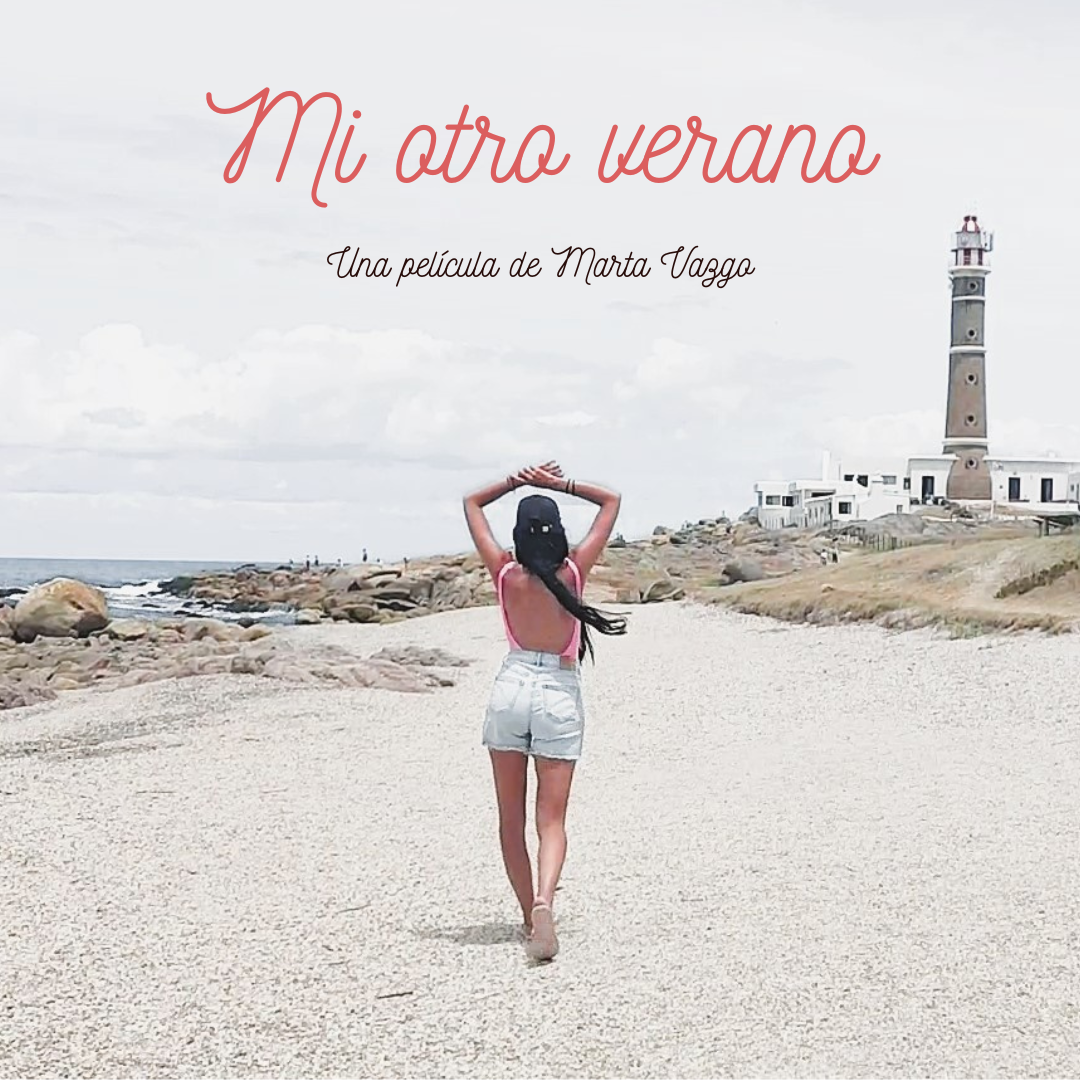
Mi otro verano - 1
The Co-production and Financing Forum serves as a key setting to identify artistic, collaborative, and industrial trends within the audiovisual sectors that connect Ibero-American regions across the Atlantic.
The fourth edition of Iberseries & Platino Industria solidified its role as a global reference for market networking, co-production, financing, analysis, and development in audiovisual content driven by Latin American talent and industry. The Co-production and Financing Forum stands at the core of this mission, serving as a key setting to identify artistic, collaborative, and industrial trends within the audiovisual sectors that connect Ibero-American regions across the Atlantic..
For the second consecutive year, feature films were included in the selection—a reaffirmed effort to unify an industry shaped by evolving distribution models impacting the entire production chain of both series and feature films, two forms in constant interchange and symbiosis.
This year, ten feature film projects and eleven television series were presented. Across both categories, dramedy stood out as the most popular genre, ranging from dark humor to romantic tones.
Five feature film projects involved Spanish companies, while for television series, Spanish participation was overwhelmingly present in ten projects. Below is a closer look at each Spanish-involved project as they continue their journey toward completion.
FEATURE FILMS
The five feature projects with Spanish participation presented an average budget of €1.6 million, with the highest budget reaching €2.3 million. Of these, three had dramedy elements.
Bendita María
Produced by Valencia-based TV ON Producciones and Admirable Films, this dramedy centers on Maria, a deeply religious elderly woman. Upon learning she’s about to be evicted, she sees no other choice but to attempt to steal funds reserved by her church for restoring her beloved Virgin statue. She enlists the help of Edu, a foster teenager about to age out of the system and lose his home. While the director is yet to be decided, the screenplay is by María Mínguez (Live Twice). Producer Paloma Mora describes the film as a "feel-good movie about global concepts such as loneliness, intergenerational difference, and hope. Both Maria (80) and Edu (17) are characters you could find anywhere—a neglected elderly woman and a young man from a broken family.”
La imagen de un crimen
San Sebastián-based Bixagu proposes a thriller with nuanced undertones that venture into other genres. Directed by Alejandro Bazzano (Money Heist, Plastic Sea), this is Bazzano’s feature debut. He describes it as a “neo-noir thriller with touches of comedy,” saying, “it’s a captivating story with a unique plot and strong characters, dealing with ethical values and one man’s struggle to find meaning in life, seeking redemption for past mistakes.” The film follows Unai, a retired 70-year-old air traffic controller living a solitary life with his old dog, who becomes obsessed with what he believes is the scene of a crime.
Mi otro verano
This “romantic dramedy” is backed by Spain’s D’Sierto Films, the personal company of director and debut influencer Marta Vazgo, in partnership with Spanish companies Link-up Production and 39 Escalones, and Uruguay’s Mother Superior. “It’s a story that portrays the shadows of a fleeting romance, a summer love in modern times, where the concept of ‘liquid love’ will define the bond between two young people overwhelmed by their emotions and the vulnerability that comes with it,” explains Vazgo, who is also the lead alongside Anais Weill, bringing a fresh, firsthand quality to the narrative.
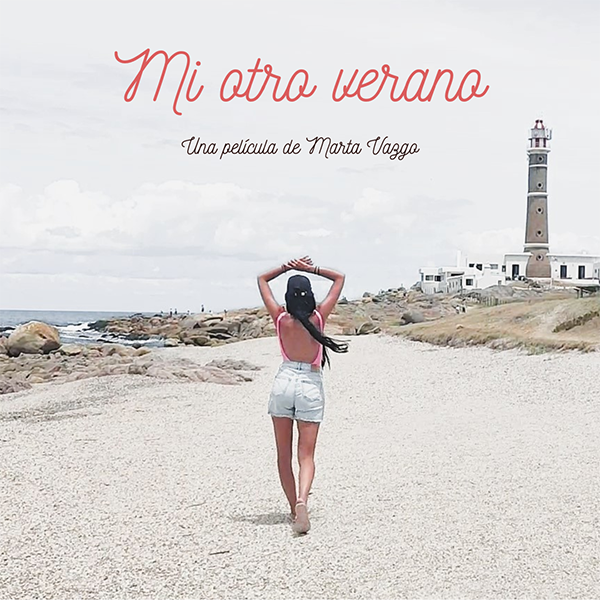
Reina del bosque
This project is structured as an Argentine production by Libre Cine, co-produced with Spain (Non Stop Studios) and the U.S., through Julio Bove’s Bosco Entertainment. It marks Argentine director Luján Loioco’s second solo feature after The Girl in Yellow Heels. This dramatic thriller begins when Julia, five months pregnant and dealing with sleep disorders, visits her dying father in a remote mountain cabin after years of estrangement. “I want to offer a different perspective on affection, loss, and our ability to connect. Queen of the Forest uses thriller elements to address the unique challenges of motherhood. It’s a female-driven story that poses questions and exposes fears often kept silent by women, with a deep and optimistic outlook on human bonds,” Loioco explains. Clara Lago and Alfredo Castro are confirmed in the cast.
Un lugar lejano
This co-production is supported on the Spanish side by Filmakers Monkeys, alongside Chilean company Rizoma and Argentina’s Twin Latin Films (Almamula, by Juan S. Torales). Presented as a drama about second chances, memory, and its loss, it is directed by Argentine screenwriter and director Alberto Lecchi (Nuts for Love, The Jar). The film explores the relationship between a virtuoso pianist and a history teacher as they attempt to rekindle love before a devastating illness takes the musician away from reality. Confirmed cast members include Ernesto Alterio (Clandestine Childhood) and Soledad Villamil (The Secret in Their Eyes).
TV SERIES
Ten of the eleven series presented at the Co-production and Financing Forum included at least one Spanish company. The average budget for Spanish-involved projects was €5.9 million, with the highest reaching €11.7 million per series.
Comedy’s Dominance
While genre classifications may not hold rigidly for historians or critics, they provide market direction, indicating a target audience and expected trajectory for each proposal. Blended tones and genres in the projects reflect the natural fluidity during early stages, as creators establish a unique identity.
One notable trend is humor’s prevalence: seven of the ten Spanish-backed projects this year feature comedy in some form. Whether dark comedy, social dramedy, or outright humor, comedy emerges as a popular tool in serialized content. This represents a 40% increase from last year, when only three projects were categorized under comedy or had significant humor.
Ana del Raval
Produced by La Charito Films and Angeli Pictures, Ana del Raval marks actress Mi Hoa Lee’s transition to fictional directing after her documentary Roots. This 10-episode, 30-minute social dramedy follows Ana, a single mother, artist, and scriptwriter struggling to “make it” for her daughter. Life for Ana has never been easy, and things worsen when her landlord threatens eviction. The breaking point comes with the sudden return of her daughter’s father, Giovanni, who’s been absent for seven years. Actor Luis Zahera (The Beasts) is attached to the cast, alongside Mi Hoa Lee, Siria Lee, and Daniel Grao.
Banda de Bufones
In this 8-episode, 45-minute series produced by Plano a Plano, Alejandro Bazzano’s Banda de Bufones takes on a dramatic thriller tone with dark comedy touches. The story centers on Michel, who hides a multiple personality disorder and is fascinated by the mysteries of the mind. While working as a maintenance employee at a psychiatric hospital, he runs a pilot theater workshop where he meets Basak, a charismatic clown confined to a high-security ward. Bazzano and co-creators Rodrigo Spagnuolo and Luis Cao say Banda de Bufones “explores the mysteries of the human mind and critiques the mental health industry with constant irony. It’s set in a dystopian world where truth fights to come to light amid corruption, portraying the complexities of being ‘different’ in a world that prizes conformity.”
How Grinchi and Mrs. Claus Painted Christmas Red
This 7-episode, 30-minute series, selected by Ventana Sur to participate in Iberseries, is produced by Spain’s La Villana in association with Argentina’s ATM and Flixxo platform. Expanding from a previous micro-series, the story begins on Christmas Eve when Grinchi, a frustrated comic book illustrator driving her late father’s taxi, encounters a mysterious, shocked woman dressed as Mrs. Claus dragging a bloody sack. Naming her Mrs. Claus, Grinchi decides to help dispose of the body. Gabriela Cortés and Andrea Meneses, co-founders of La Villana, are the showrunners.
Daddy Issues
A cross between mockumentary and dramedy, this 9-episode, 4-minute series is produced by Spain’s ECTV Media and Colombia’s Alibi Films. Creator Mauricio Quintana describes it as “a disruptive fiction that uses a transmedia mockumentary to tell the story of Samuel Mendes, a psychologist and psychiatrist from the University of Oviedo. He developed the theory of ‘Generational Interrelation’ and the ‘3D Sensory Memory Exploration’ method, aimed at helping men heal childhood traumas by reconstructing father-son relationships.”
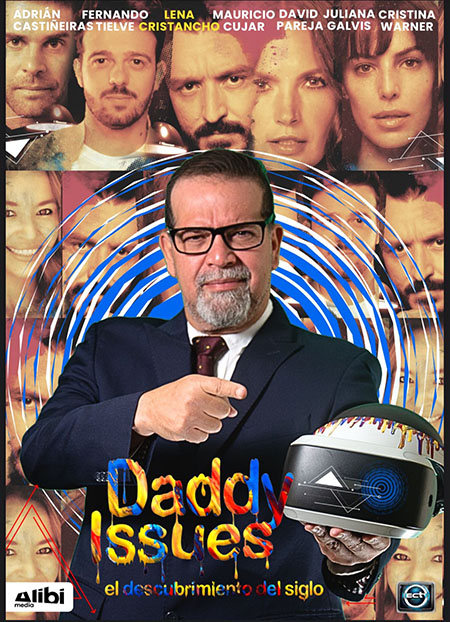
Una serie de gente
In this 6-episode, 45-minute comedy created by Marina Jover and co-written with Ana G. Sierra, Una serie de gente is produced by Barcelona-based Nanouk Films, known for This Is Not Sweden, a Canneseries award-winner. Producer Sergi Cameron aims to replicate the successful multi-country coproduction model, ensuring both quality and creative originality. Una serie de gente follows a bitter former TV star who gets the chance to work as an extra on a surreal ad shoot in a mansion in Cadaqués.
Yo y punto
Created by Mariam Hernández, Pablo Ferreira, and Lucas Mirvois, this 8-episode, 26-minute dramedy series tackles themes of single motherhood and assisted reproduction—topics increasingly relevant yet rarely depicted. Inspired by Hernández’s own experiences, the story follows Axel, a thirty-something at her peak who learns she has early menopause and embarks on a humorous, chaotic journey to become a single mother.
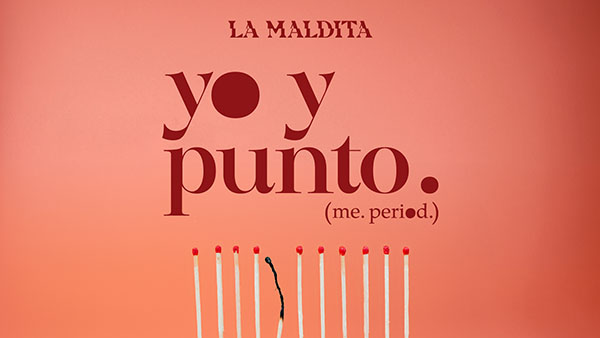
Once hermanos
This 8-episode, 45-minute series rounds out the lineup of dramedies, combining “thriller intrigue” with a touch of White Lotus vibes. An ambitious co-production across Mexico, the U.S., Peru, Argentina, and Spain, the series is created by Diego Martinez-Ulanosky, known for Netflix’s Unstoppable. Eleven people of varying backgrounds, ages, and nationalities receive an invitation from their shared father to meet on a paradise beach in Mexico. As secrets surface daily, these sudden siblings must navigate their connections and the unpredictable intentions of their enigmatic father.
OTHER GENRES
Duarte, Evita Behind the Balcony (5 episodes x 60 min) offers a fresh take on the character of Eva Perón, blending drama and coming-of-age elements. The story begins in 1935, as Eva arrives in Buenos Aires with dreams of becoming an actress. Alongside her boarding house friends, she explores theaters, film studios, radio stations, and trendy bars. Described by its creators as a “punk and justice-driven” Evita, the series is produced by Argentina's Kapow, with Paula Hernández (The Sleepwalkers, The Siamese Bond) directing. The project will adapt Evita, Jirones de su vida by Felipe Pigna, and co-production negotiations with Spain are currently underway.
Presented as a thriller/true crime series, El abogado Mattos; David vs. Goliath (8 episodes x 45 min) is created by Federico Durán and Raúl Prieto of Colombia’s Rhayuela Films in co-production with Spain, with negotiations still in progress. Durán, also the executive producer, explains: “It’s a true-crime fiction about an ordinary man who, blinded by ambition, betrays his principles, violates the core rules of his profession, loses his family, and descends into his own personal hell. This true crime involves one of the world’s top car brands, one of Latin America’s wealthiest men, and one of the biggest corruption scandals of recent years in Colombia and Spain.” Christian Tappan (The Great Heist) has confirmed his participation.
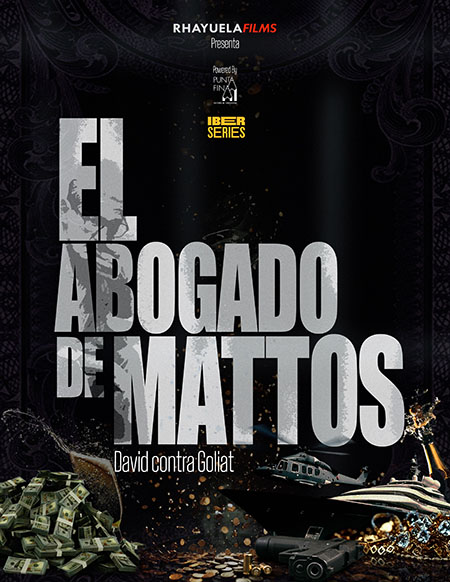
Lastly, an action thriller titled Pocos, buenos y seguros (6 episodes x 50 min) marks the second project from Basque company Bixagu at this year’s Co-Production and Financing Forum. Created by Ales Payá and Gorka Lasaosa and directed by Álex Rodrigo (Money Heist, Locked Up), the series is based on historical events set in post-Franco Spain in 1977. A young inmate joins a revolutionary prison movement advocating for reform within a corrupt and brutal penal system, sparking riots that shake the foundations of Spain’s penitentiary system during the Transition.
Related
No results found.
Related news
-

"cmp-button__icon--noticiasClock">14 October 2024
"cmp-button__icon--noticiasClock">14 October 2024
The Co-production and Financing Forum at Iberseries & Platino Industria: A Barometer of Content and Industry Trends in Latin America
The fourth edition of Iberseries & Platino Industria solidified its role as a global reference for market networking, co-production, financing, analysis, and development in audiovisual content driven by Latin American talent and industry. The Co-production and Financing Forum stands at the core of this mission, serving as a key setting to identify artistic, collaborative, and industrial trends within the audiovisual sectors that connect Ibero-American regions across the Atlantic..
Fiction "cfm__rectangle"> Iberseries 2024"cmp-button__icon--noticiasClock">14 October 2024
